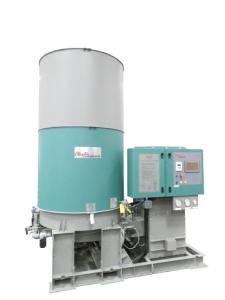
Industrial facilities worldwide recognize the transformative power of modern steam generation systems. These sophisticated units revolutionize manufacturing processes through superior thermal performance, substantial operational savings. High pressure steam boiler manufacturers develop advanced technologies that optimize energy conversion, minimizing waste while maximizing productivity across diverse applications. These systems deliver consistent thermal output, supporting continuous production cycles with remarkable reliability, durability for decades of dependable service.
Energy Efficiency
- Advanced thermal conversion reduces fuel consumption by twenty to forty percent annually
- Sophisticated heat recovery systems capture waste energy for reuse applications
- Optimized combustion chambers maximize fuel utilization through precise air mixing controls
- Computer-aided design delivers optimal heating surface transfer for superior performance ratings
- Quick startup capabilities minimize energy waste during operational transitions periods
Operational Reliability

- Robust construction materials withstand extreme pressures, temperatures for extended service life
- Minimal moving components reduce maintenance requirements, potential breakdown occurrences significantly
- Automatic control systems monitor pressure, temperature continuously for safe operations
- Consistent steam production ensures uninterrupted manufacturing processes throughout production cycles
- Predictable performance characteristics enable accurate production planning, scheduling for facilities
Cost Effectiveness
- Reduced operational expenses through lower fuel consumption, maintenance requirements annually
- Initial investment recovered within first year through substantial energy savings
- Multiple fuel options provide flexibility for choosing economical energy sources
- Extended equipment lifespan minimizes replacement costs over decades of service
- High pressure steam boiler manufacturers offer customizable solutions reducing overall investment requirements
Sustainable Operations
- Reduced emissions support environmental compliance with modern regulatory standards
- Alternative fuel capabilities include biomass, biogas for renewable energy integration
- Improved efficiency translates directly into lower carbon footprint for facilities
- Advanced burner technologies minimize nitrogen oxide emissions during combustion processes
- Waste heat recovery systems enhance overall environmental performance through energy optimization
Common Questions
Which factors determine steam generation efficiency ratings?
- Heat transfer surface area, combustion optimization determine overall efficiency performance
- Fuel quality, burner design significantly impact thermal conversion rates
- Insulation systems, heat recovery technologies enhance overall energy utilization
How frequently should maintenance procedures be performed?
- Regular inspections ensure optimal performance, safety throughout operational periods
- Preventive maintenance schedules depend on usage intensity, operational conditions
- Professional servicing extends equipment lifespan, maintains efficiency ratings consistently
Modern manufacturing demands require efficient thermal systems that deliver consistent performance while controlling operational expenses. Advanced steam generation technology provides substantial returns through reduced energy consumption, lower maintenance costs over extended service periods. These systems support sustainable operations through improved efficiency ratings, reduced environmental impact. Strategic implementation of enhanced thermal systems positions facilities for competitive advantages in today’s demanding market conditions through optimized production capabilities, controlled operating expenses.







